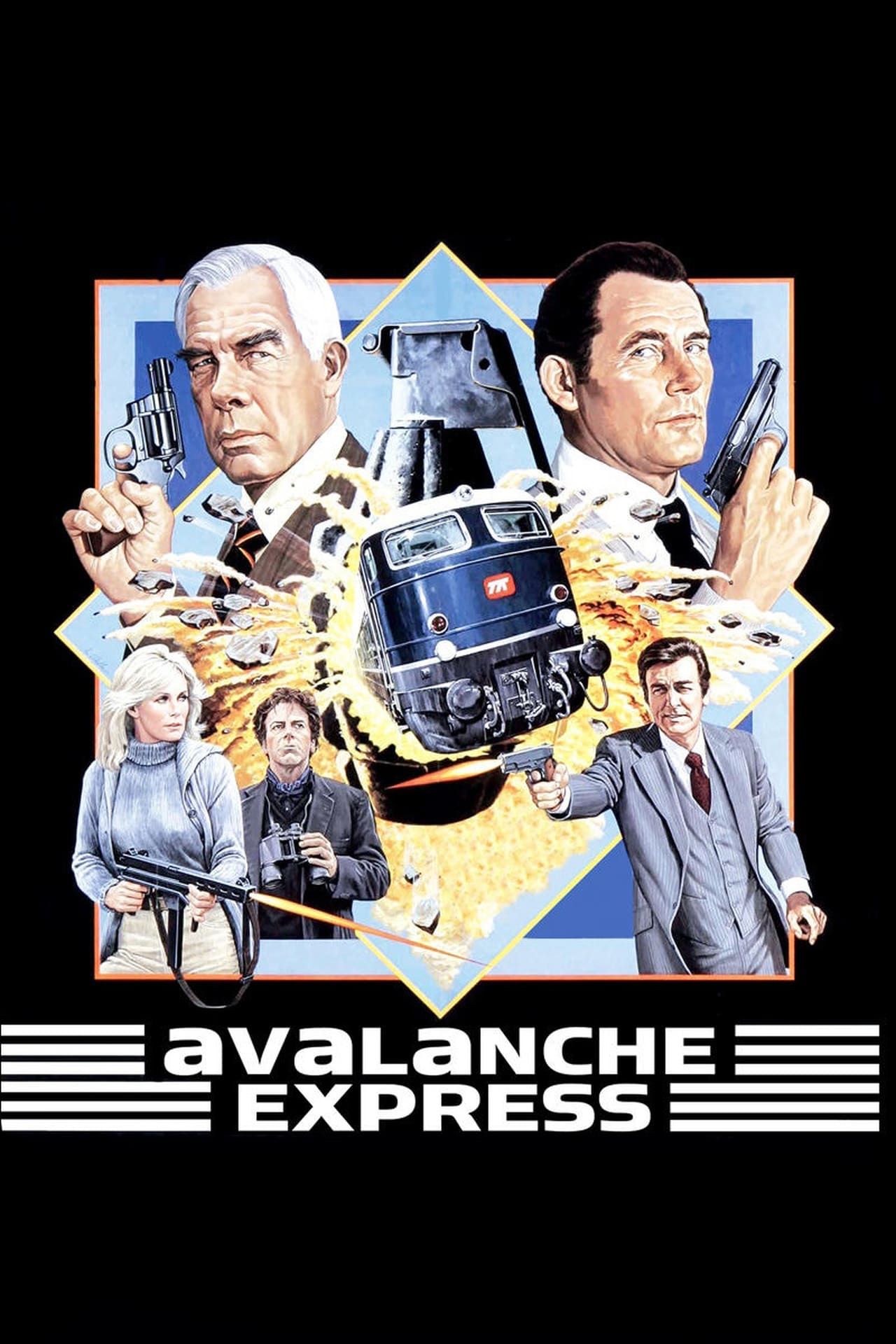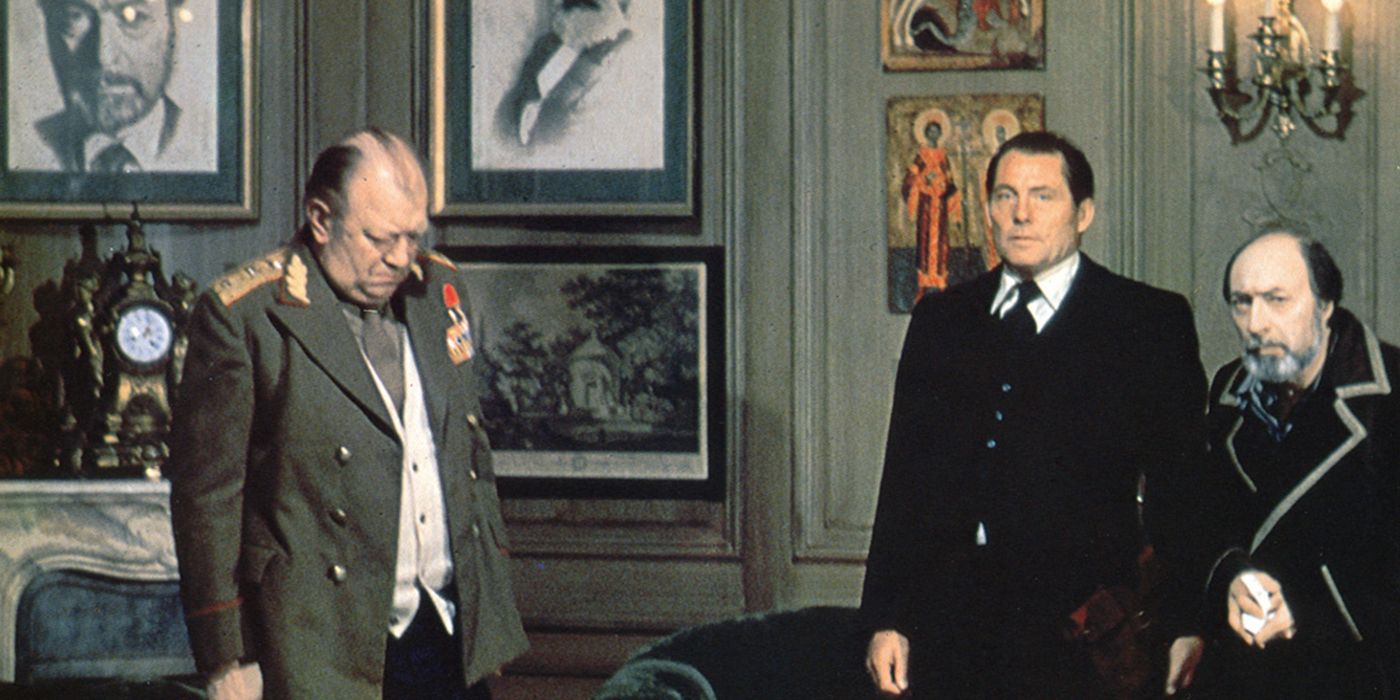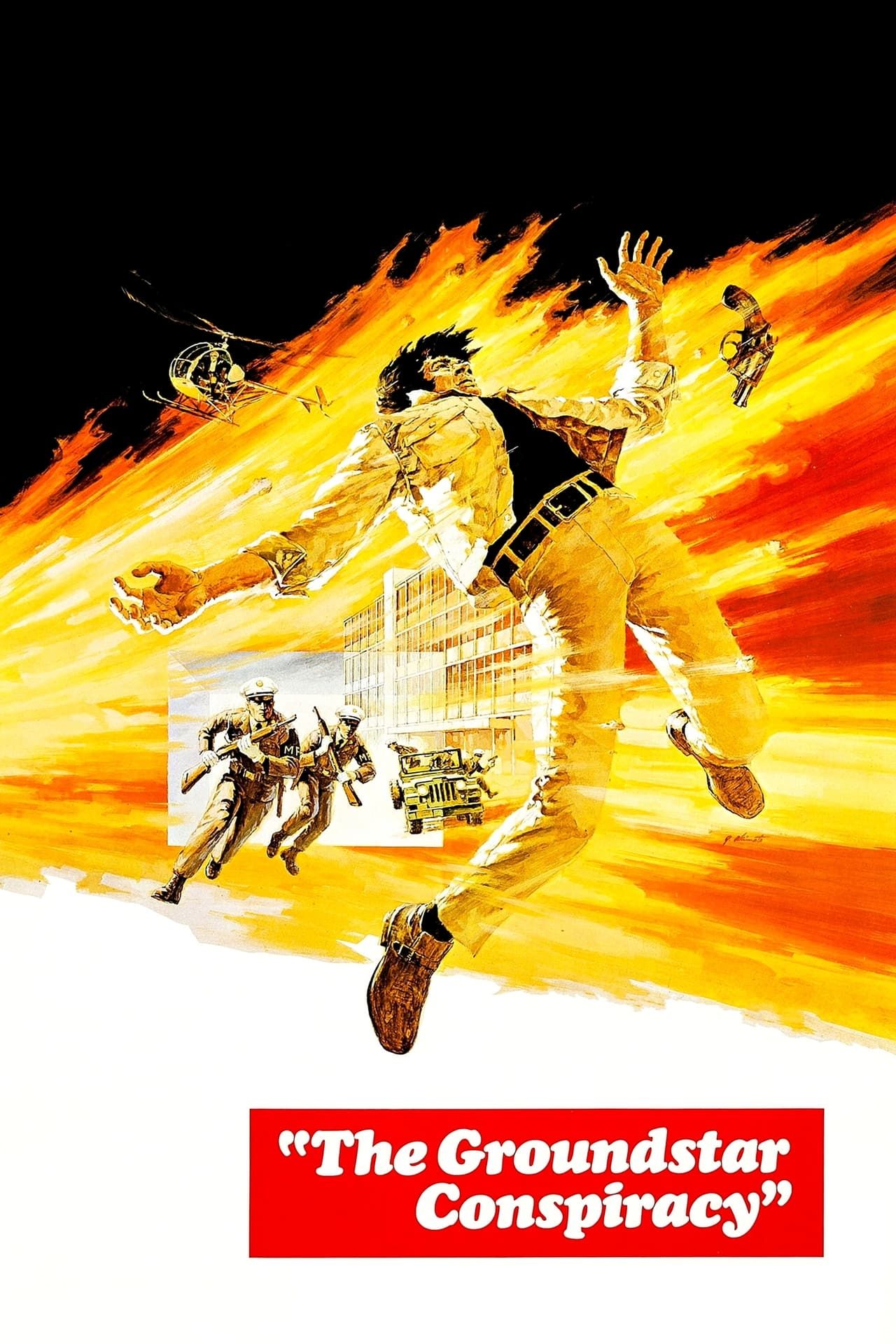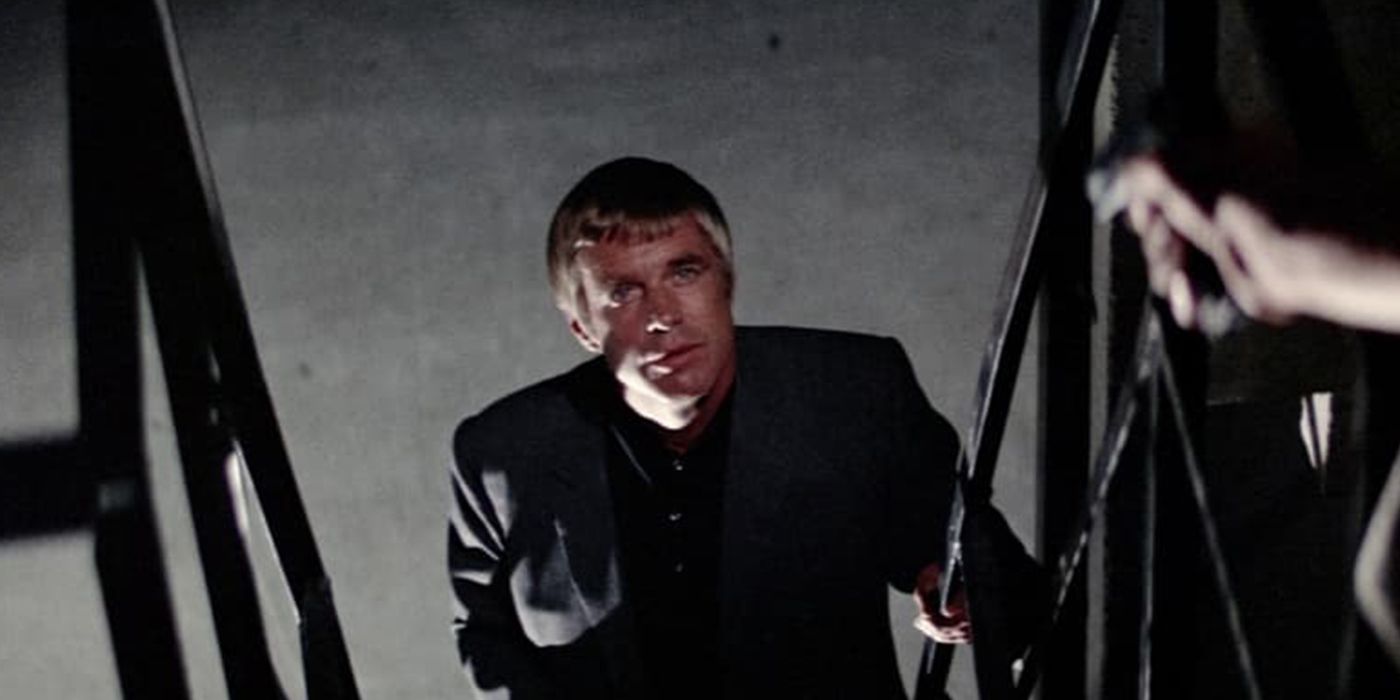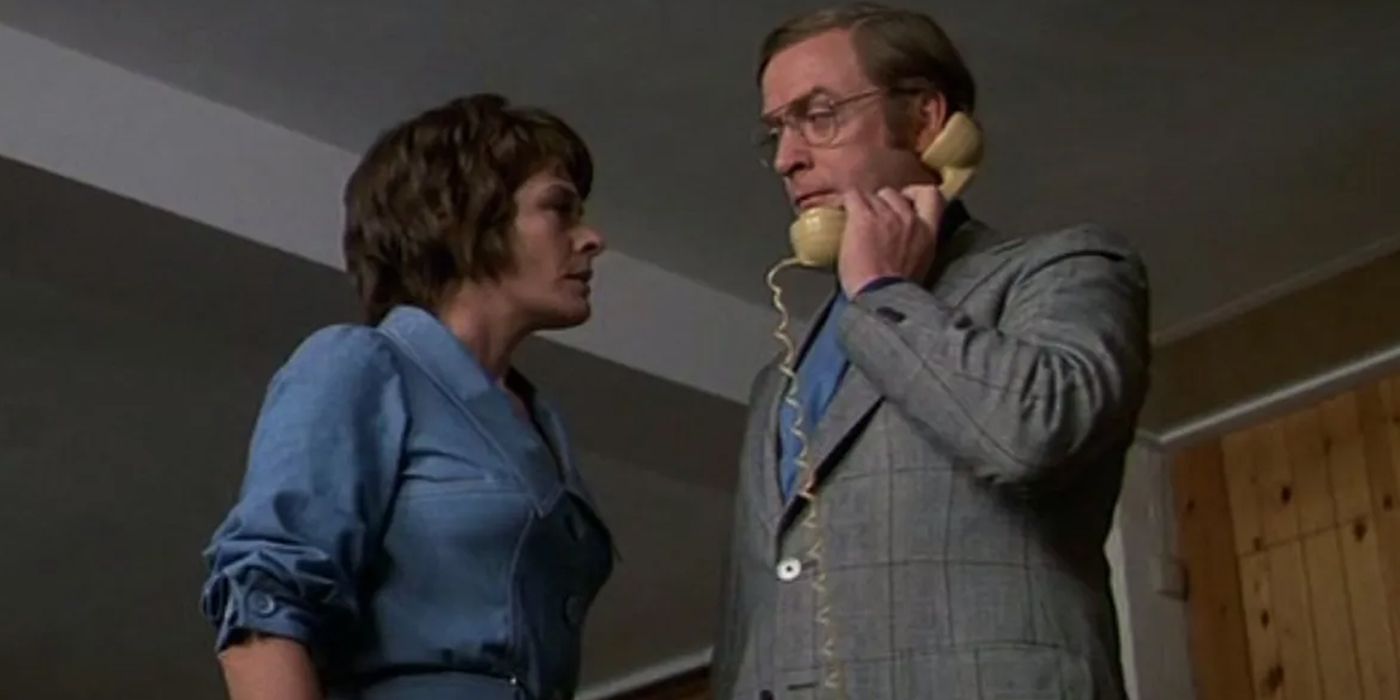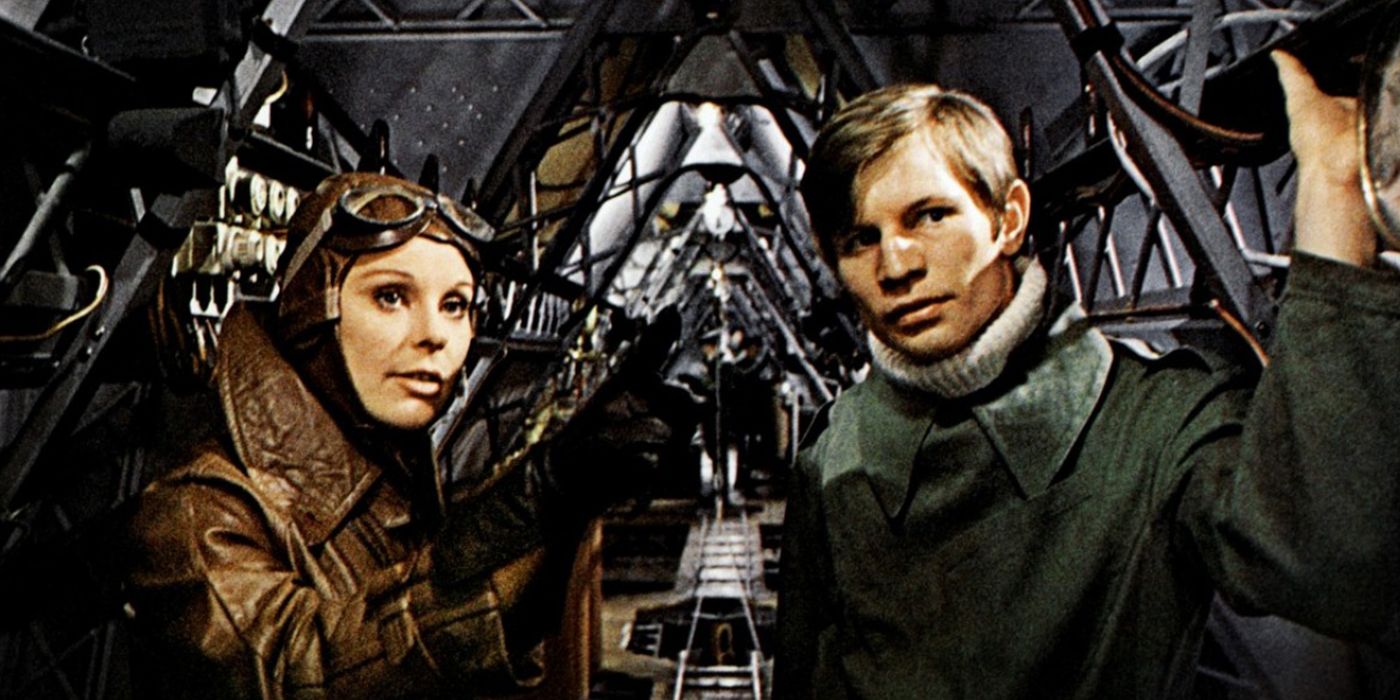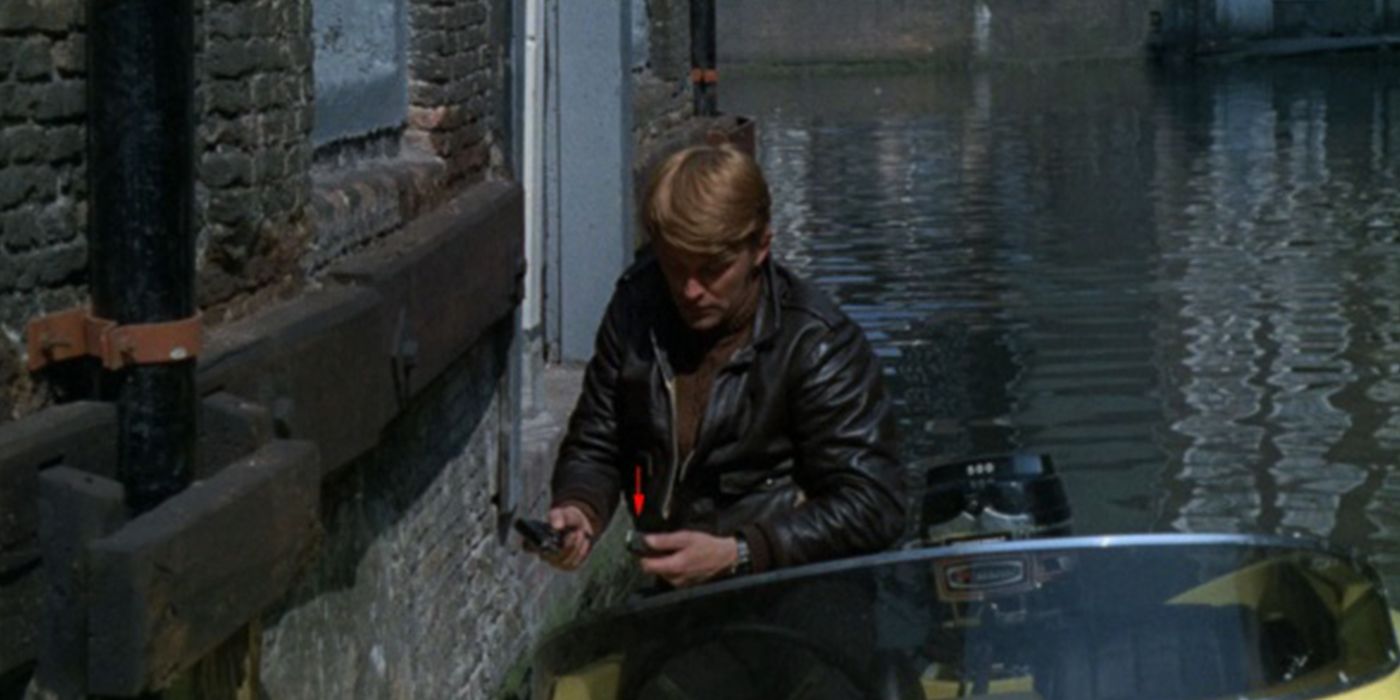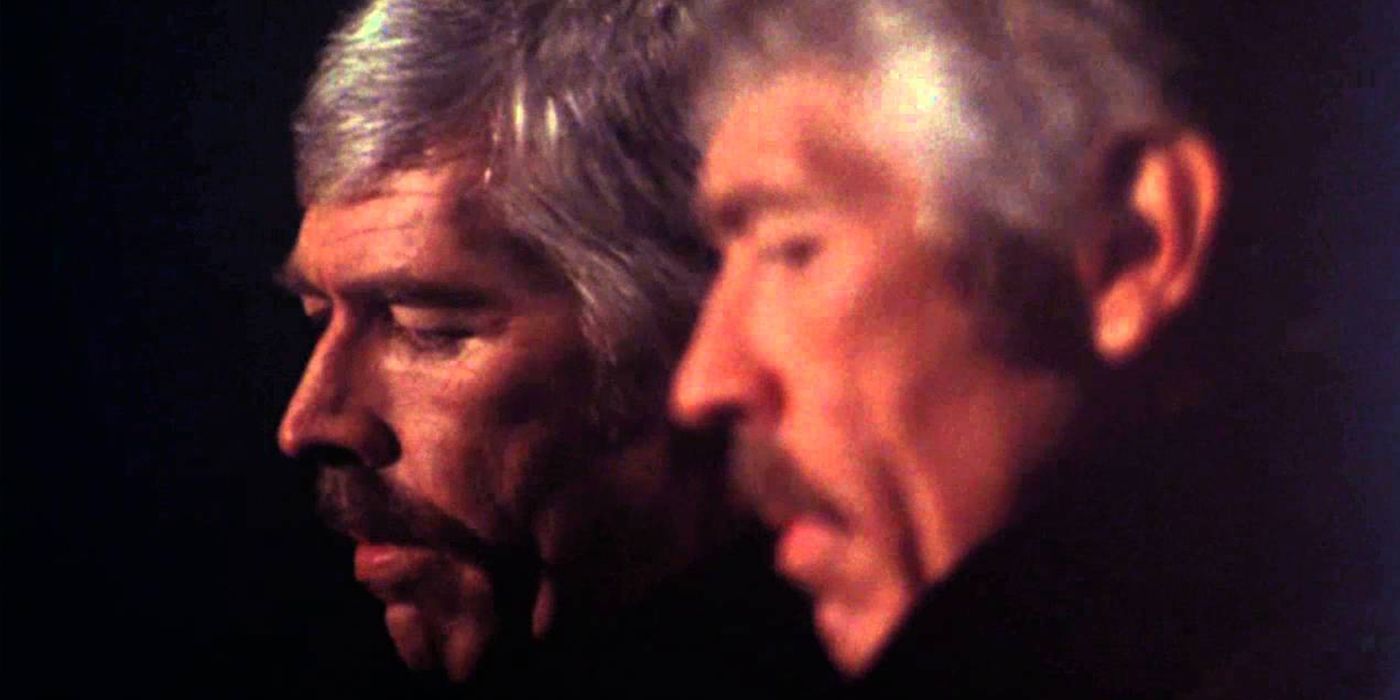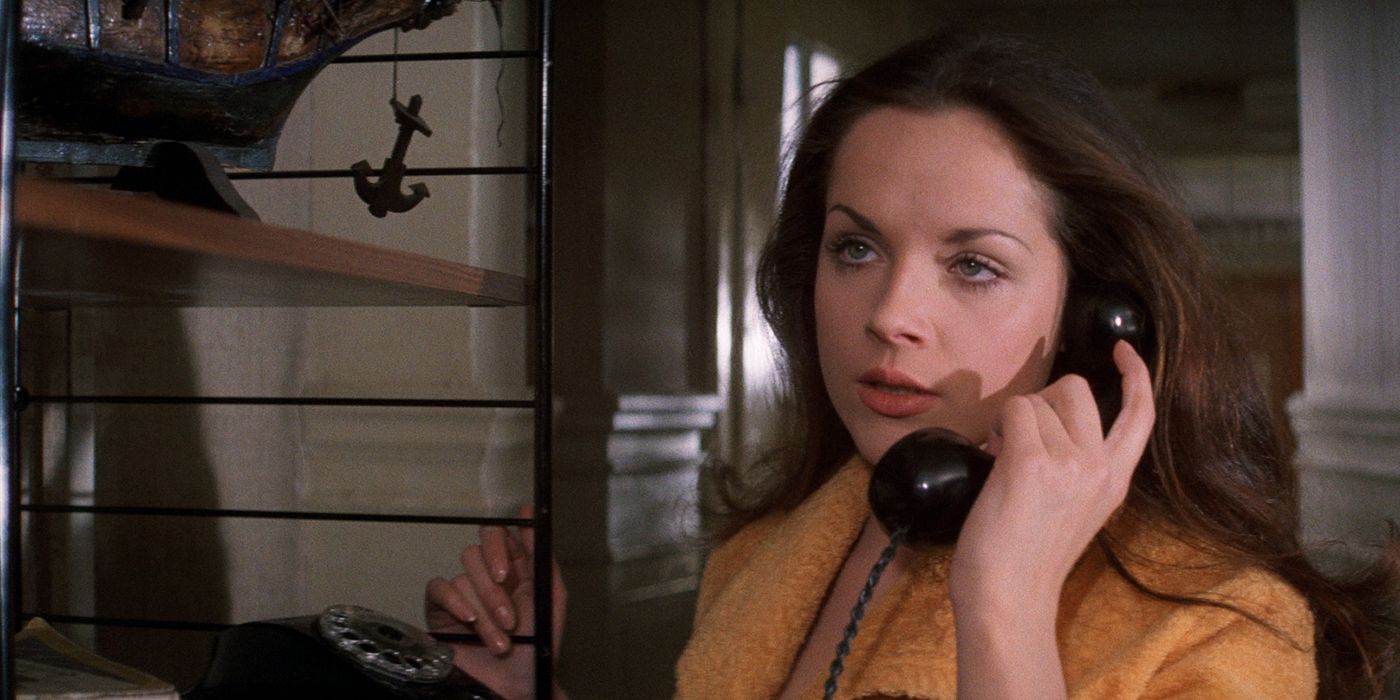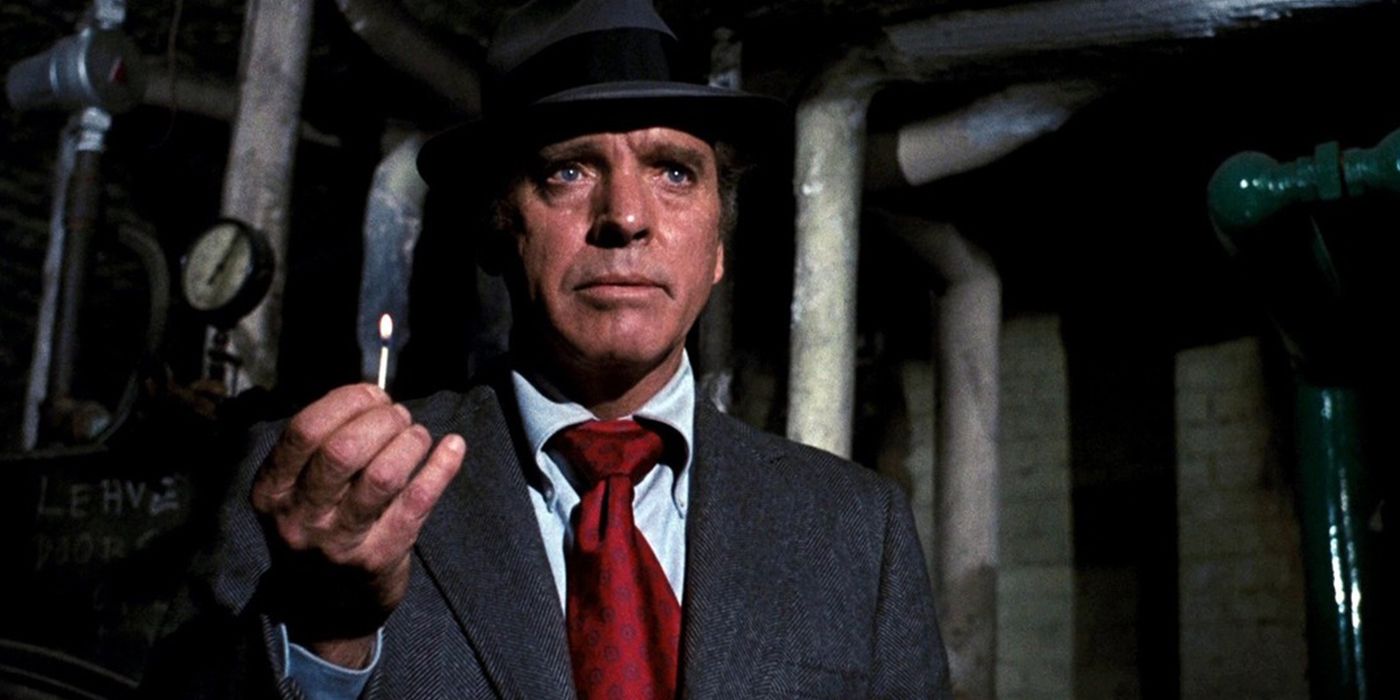
The 1970s were an excellent time to be a fan of the spy thriller genre. Franchises like the James Bond films were becoming increasingly popular, with five Bond films being released during this decade alone (including favorites from the Roger Moore era, such as Live and Let Die and The Spy Who Loved Me). 007 wasn’t the only force to be reckoned with in the genre, though. Other major features, like 3 Days of the Condor and Francis Ford Coppola’s The Conversation, also roared onto the scene, making spy thrillers a beloved genre throughout the country.
Of course, not every spy film received the same level of acclaim as these hits. Because so many of this type of film were being released at the same time, many great ones managed to fly under the radar. Sadly, these films never seemed to get the attention they rightfully deserved. Now, when looking back at this era in the film industry, it is essential to take a look at the more underappreciated spy thrillers of the 1970s, and remember that the genre goes far beyond James Bond.
10 Telefon (1977)
Directed By Don Siegel
What if there was an entire network of secret agents who had no idea they were secret agents? The 1977 spy thriller, Telefon, explores the answer to this unsettling question. The story of the film revolves around the idea that the Soviet Union planted an assortment of brainwashed sleeper agents throughout the United States. Upon hearing a predetermined code phrase, the agents would suddenly enter a hypnosis-like state, and would blindly begin working to violently destroy their assigned location in the U.S.
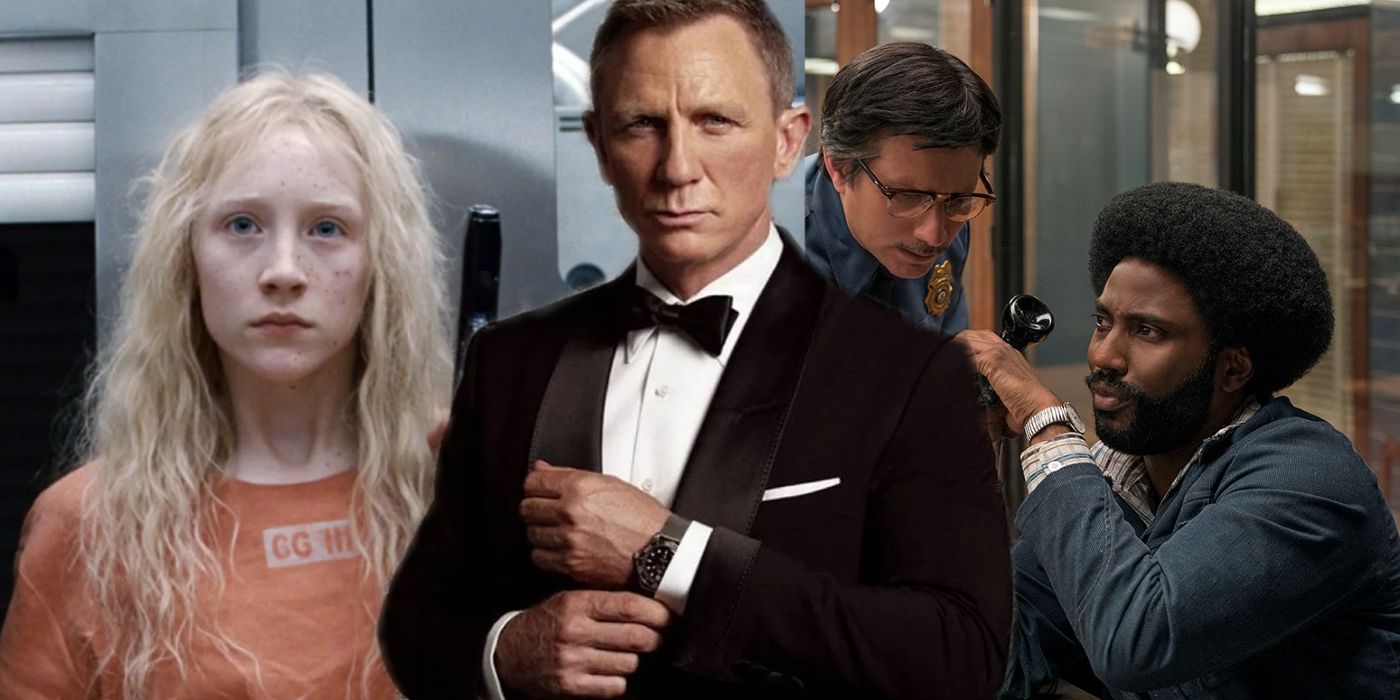
Related
The 30 Best Spy Movies Of All Time
The best spy movies are full of gripping intrigue, big twists, and heart-pulsing action sequences, and feature brilliant secret agent characters.
The film stars Charles Bronson as Grigori Borzov, a KGB Major with a photographic memory. With Cold War tensions beginning to ease, the Soviet Union no longer wishes to deploy the sleeper agents. However, when the book with all the code phrases falls into the wrong hands, it is up to Borzov to get it back before it is too late. Telefon has a unique, intriguing plot, certain to keep viewers on the edge of their seats until the very end.
9 The Mackintosh Man (1973)
Directed By John Huston
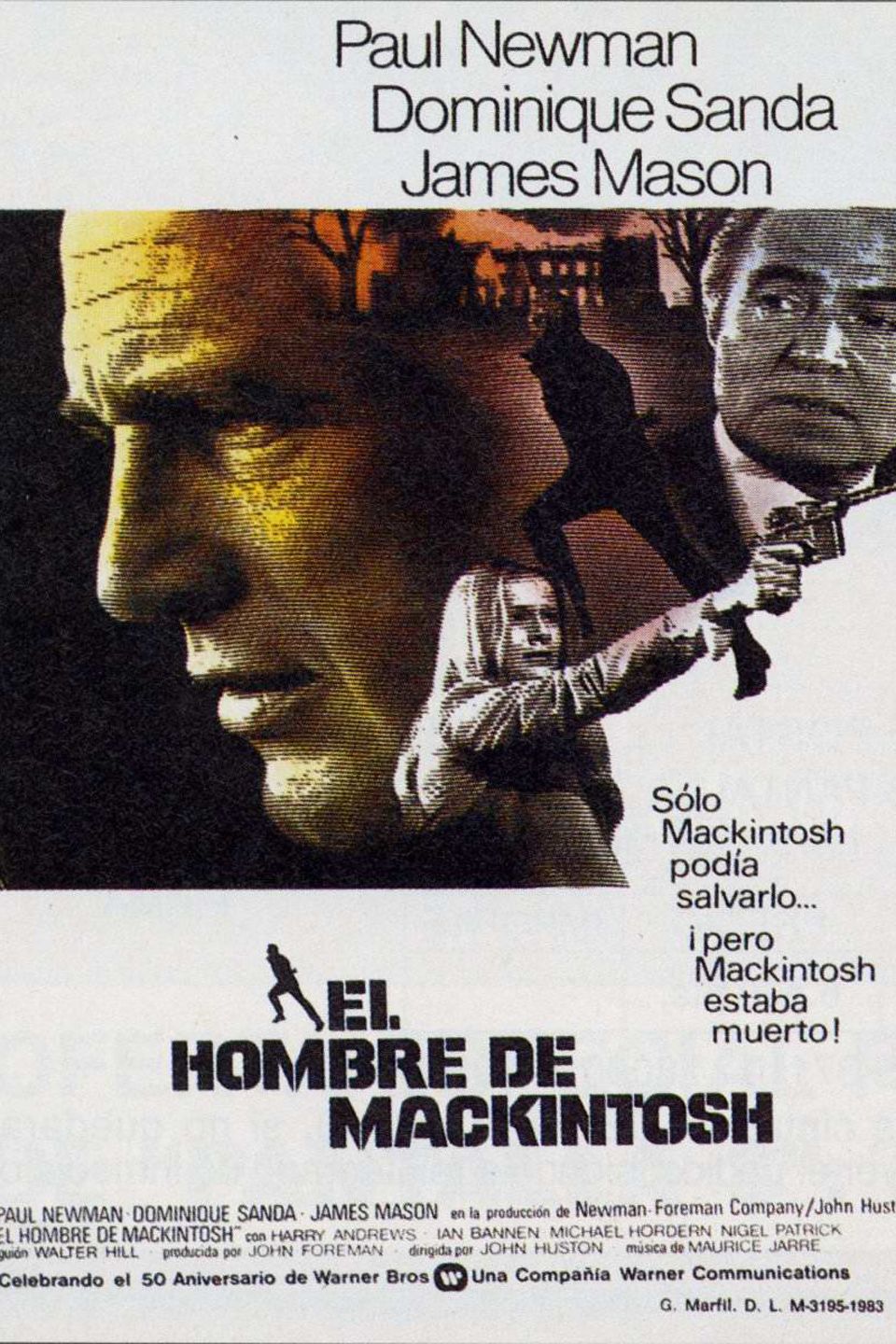
The Mackintosh Man
Joseph Rearden is a jewel thief forced to participate in a British Secret Service plan to unmask a double agent. He is sent to a penitentiary to help a political prisoner escape and reveal his ties to the double agent.
- Director
- John Huston
- Release Date
- July 25, 1973
- Cast
- Paul Newman , Dominique Sanda , James Mason , Harry Andrews , Ian Bannen , Michael Hordern
- Runtime
- 98 minutes
Based on Desmond Bagley’s novel The Freedom Trap, The Mackintosh Man is a 1973 spy thriller set during the height of the Cold War. The film stars Academy Award winner Paul Newman as Joseph Rearden. Rearden is a complex, multilayered lead character. The former-thief-turned-intelligence agent is tasked with letting himself be captured and imprisoned as a means of infiltrating a spy organization with various members in the same prison.
Despite being a strong, captivating film,
The Mackintosh Man
often gets overshadowed by other major features in Newman’s decades-long filmography
Things quickly go haywire as Rearden struggles to keep his true identity a secret. Despite being a strong, captivating film, The Mackintosh Man often gets overshadowed by other major features in Newman’s decades-long filmography, such as Cool Hand Luke and Road to Perdition.
Similarly, the film also comes from a director with a long line of prestigious works. Before The Mackintosh Man, John Huston was known for critically-acclaimed films like The Maltese Falcon and The Treasure of the Sierra Madre. The storytelling skill of Huston and the impressive performance of Newman make The Mackintosh Man an underappreciated gem of the spy thriller genre.
8 Avalanche Express (1979)
Directed By Mark Robson
Mark Robson’s 1979 spy thriller, Avalanche Express, is an exciting film about a CIA agent tasked with protecting a senior Russian official who has made the risky decision to defect to the West. The duo’s belief that taking a train would be their safest means of traveling across Europe quickly proves to be misguided, and the ride winds up being anything but peaceful. Together, the pair must face a human-caused avalanche and an aggressive team of Soviet agents in order to get off the train alive.
For tragic reasons, Avalanche Express ended up being a rather historic film. The action-packed feature ultimately became the final film for both director Mark Robson and actor Robert Shaw, perhaps best known for his work in Jaws and The Sting. Both tragically passed away in 1978, before the film could be released. Avalanche Express serves as a thrilling tribute to these two men, and the massive impact they had on the film industry.
7 The Groundstar Conspiracy (1972)
Directed By Lamont Johnson
The tagline for The Groundstar Conspiracy suggests that the film is an excellent choice “only if you like gripping suspense and surprise endings,” and it confidently delivers on that promise. The 1972 thriller from Lamont Johnson begins with a botched sabotage attempt at a secret research facility.
The resulting explosion leaves John Welles severely injured, and claiming to have no memory of not only what he was doing at the facility, but of his entire life. This leaves the tough government official, Tuxan, to get to the bottom of the peculiar situation. The Groundstar Conspiracy creates a fun twist on the typical spy thriller by including the additional mysterious element of the protagonist’s unknown backstory.
What really makes the film a standout, though, is its ending. The conclusion of the film is an impressive blend of cleverness, emotion, and excitement, one that is bound to make viewers wonder what they would have done if they had been in the character’s shoes. Additionally, the clever foreshadowing of the surprise ending makes The Groundstar Conspiracy even more enjoyable on a rewatch.
6 The Black Windmill (1974)
Directed By Don Siegel
The Black Windmill is a 1974 spy thriller from Don Siegel, who also directed Telefon. Although it remains an exciting spy film, The Black Windmill plays much more heavily into the family dynamic than most members of the genre. The protagonist is Major John Tarrant, a British intelligence officer who is forced to take matters into his own hands when his son is kidnapped and held for a massive ransom.

Related
10 Cult Classic Movies From The ’70s That Aged Poorly
While all these 1970s have achieved cult status, it must be admitted that they have aged quite poorly when viewed through a modern lens.
Similar to the 2008 film, Taken, The Black Windmill explores the incredible lengths that a parent will go to in order to protect their child. The lead role in The Black Windmill is played by Michael Caine, who powerfully captures the relentless intensity of a parent whose child is threatened.
Given the vast extent of Caine’s filmography, which includes six Oscar-nominated performances, it is not overly surprising that The Black Windmill has been fairly overshadowed by some of his other works. However, Caine’s performance and the film’s willingness to explore family dynamics in a spy-based setting make it a worthwhile watch.
5 Zeppelin (1971)
Directed By Etienne Perier
Set during World War I, Zeppelin is a thrilling, dramatic spy film about a man confronted with a major decision regarding his loyalty. The protagonist, Lieutenant Geoffrey Richter-Douglas, has strong ties to both Britain and Germany, leaving him plagued with uncertainty when presented with the offer to leave his position in the British Army and become a German agent.
Upon accepting the role after being instructed to pretend to defect to Germany, things get even more complicated when Richter-Douglas is tasked with guiding a German zeppelin on a mission to steal priceless documents from Britain. There are many elements that make Zeppelin a unique member of the spy thriller genre.
First, the emphasis it puts on the issues of loyalty for the protagonist makes the film a complex character study, certainly giving more depth to its characters than many spy movies. The World War I setting is also an interesting change of pace, given that most spy films of the ’70s tended to rely on elements related to the Cold War as the central conflict. Plus, most obviously, the colossal airship on which much of the film is set is certainly a spectacle to behold.
4 Puppet on a Chain (1970)
Directed By Geoffrey Reeve
Following a triple homicide, an American named Paul Sherman (played by Sven-Bertil Taube) is sent to Amsterdam to investigate the drug smuggling ring believed to be responsible. Finding the local police to be incapable of handling the rampant drug problem on their own, Sherman teams up with an undercover agent to fix things once and for all. This is the basis of Puppet on a Chain, a British spy film directed by Geoffrey Reeve.
This action-packed film is based on the similarly-titled novel by Alistair MacLean, one of the most popular thriller authors of all time. While Puppet on a Chain is packed with exciting sequences from beginning to end, one scene in particular is a must-see for fans of the genre.
During the buildup to the film’s climax, Sherman finds himself in hot pursuit of a criminal named Meegeren (played by Vladek Sheybal). What follows is a thrilling high-speed chase/shootout through a series of canals, with each man commandeering a speedboat. The scene, which was directed separately by Don Sharp, left a lasting impact on action-based cinema, and even inspired a similar scene in the Bond film Live and Let Die.
3 The Internecine Project (1974)
Directed By Ken Hughes
In Ken Hughes’, The Internecine Project, Robert Elliot realizes that drastic measures must be taken to erase his shady connections before he can begin a new job for the United States government. The cunning Elliot devises a plan to have all four of his connections murder each other on the same night, in order to guarantee that none of them are ever able to reveal the truth about his espionage.
The dark, thrilling film constantly keeps viewers wondering whether the plan will succeed, and whether anyone will survive to the end. The Internecine Project is very different from most films in the spy thriller genre, though it is no less captivating by any means. Unlike in a typical espionage film, the main character of The Internecine Project is not someone the audience really hopes will succeed.
Elliot, played by Oscar winner James Coburn, is clearly a shady individual, yet regardless of whether you hope his scheme succeeds or fails, it is practically impossible to stop watching. The creative story and chilling ending make The Internecine Project a hidden gem in the thriller world.
2 The Odessa File (1974)
Directed By Ronald Neame
Based on the Frederick Forsyth novel of the same name, The Odessa File follows a reporter who finds himself playing a vital role in the takedown of a former concentration camp commander in Germany. Jon Voight plays the protagonist, Peter Miller, on his journey fueled by vengeance, determination, and grief.
The film is very complex and intriguing, exploring the ways a nation is still influenced by war even decades after its conclusion
The film is very complex and intriguing, exploring the ways a nation is still influenced by war even decades after its conclusion. The Odessa File stands out as a spy movie in which the main character is not actually a spy. At the beginning of the film, Miller is merely a reporter (and not even a high-ranking one at that).
The Odessa File
has an IMDB score of 7.0 and a Rotten Tomatoes critics’ score of 69%.
Over the course of The Odessa File, he continuously gets thrown deeper and deeper into the world of espionage, something he likely never imagined himself getting involved in. This gives the film a unique spin, encouraging viewers to wonder how they would fare if they were in the same situation as Miller.
1 Scorpio (1973)
Directed By Michael Winner
Michael Winner’s 1973 thriller, Scorpio follows two trained assassins caught up in a deadly game of cat-and-mouse. The two men are Cross, a seasoned assassin for the CIA, and his protégé, Scorpio, whom he has been dutifully training to become a master in the field of killing.
Their connection is tested when the CIA insistently assigns Scorpio the duty of killing Cross, who is believed to be working with Soviet forces. The film stars Academy Award winner Burt Lancaster and Alain Delon as Cross and Scorpio, respectively. Aided by strong performances from the lead actors, the most captivating element of Scorpio is the dynamic between the main characters.

Related
10 Thrilling Modern Spy Movies That Aren’t James Bond
The last decade has produced plenty of exciting spy movies, proving that the genre is in good health even without thinking about James Bond.
The idea of having an assassin be tasked with killing his mentor not only paves the way for plenty of action, but also adds a deeper complexity to both characters. Audiences are unsure not just of who will survive, but of who they want to survive. The complex dynamic of Scorpio and Cross makes the film a nail-biter from start to finish.

